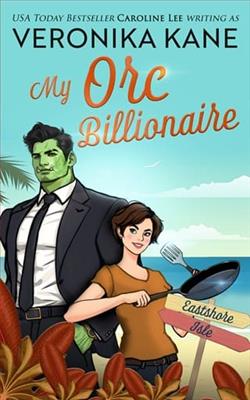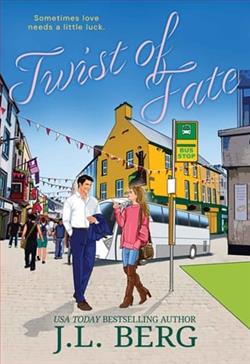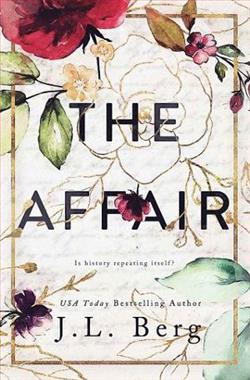Page 99 of A Step You Shouldn't Take
“Tsk tsk tsk. This is exactly the attitude I’m talking about. You should take a leaf out of Leanne’s book. See how well behaved she is?”
Well behaved? Annie was practically catatonic.
“How do you choose your victims, anyway?”
“Guests. I prefer guests.” Of course he did. “And the selection process is part of the fun. Sometimes, I plan the journey in advance, like with Dawn. She used to wait tables at my favourite little lunch spot in DC, and she always gave me extra pickles in my sandwich. Such an angel. We went out for a lovely dinner before we came here, and she certainly made an effort to dress up.” He smiled at the memory. “But nothing beats the joy of a spontaneous invitation, like with you the first time around. I only went to that hotel for some waste-of-time meeting about investing in a property development, and there you were. K for Kimberly, waiting for me in the bar. Except now we’ve had to change your name a tiny bit.”
“I wasn’t waiting for you.”
“Don’t you believe in fate, Noelle?”
A month ago, I’d have said I didn’t, but that was before I met Reed. The man who believed me. Believedinme. Peter took my silence to mean agreement and gave an arrogant little smile I wanted to sandpaper off his pompous face.
“See? We’re more alike than you care to admit, Noelle.”
“No way. We’re not alike at all.”
“Don’t argue, Noelle. It’s not an attractive quality.”
Arrrgh!And stop calling me Noelle.
Tonight, it was my turn to eat dinner with my captor. Several times over the last three days, he’d apologised for being unable to give us as much individual attention now there were thirteen of us, but he didn’t seem sorry for keeping us in his freaking cellar in the first place.
Each morning, he’d stop by with breakfast, which could be anything from a protein bar to a lukewarm breakfast sandwich filled with sausage and egg, served up with a latte from Manny’s Delicatessen. What did Manny think when Peter asked for thirteen meals to go? That he was just a real generous guy in the office? I didn’t understand Peter either. In a weird way, he did try to look after us—he even brought Hailee a separate vegan option with every meal—but he was also cruel beyond words. Yesterday, I’d tried to reason with him, told him that I had a life and a family and a bride getting married on Saturday, but that had only made him angry. In the evening, when he brought dinner, I’d got a carrot while the others got pizza. Annie tried to pass me a slice of hers, but we couldn’t reach through the bars.
Annie wasn’t doing well. Understatement of the year there. After she escaped from her ex-boyfriend, she’d withdrawn into herself for months, and I could see her doing the same again now. She mostly sat at the back of her cell, legs drawn up to her chest, muttering about how she’d broken a mirror last week and now she’d have bad luck for seven years. What could I do to help? I’d tried talking to her, but mostly she refused to answer.
Tonight was supposed to be her evening out of the cage with Peter, but she’d looked so terrified at the thought that I’d volunteered to take her place. Which was why I was currently trying to keep my feet out of the way as Peter stumbled through a waltz. Having to touch him made my skin crawl. I wanted to take a shower, to scrub the filth off myself, but it wasn’t my turn yet. Showers were once a week, two girls at a time. According to Jacqueline, Peter had fitted one of the storerooms at the far end out as a bathroom with a shower, toilet, and basin, and if we wanted a particular brand of shampoo, he’d buy it for us. How generous.
“Does he watch us? In the shower?” I’d asked.
“Sometimes.”
It was all I could do to stop myself from throwing up again.
Lunch was a hit-and-miss affair, usually a salad or a sandwich with fruit. We needed to stay healthy, Peter told us, and he handed out vitamin pills like candy. Dinner might be more of the same or something hot. Abigail and Brianna said that in the early days, he’d put a real effort into cooking, but now there were more of us, he tended to cut corners with TV dinners and packaged food.
The other girls seemed to be resigned to their fate, even Katia although she hadn’t been there for long. Abigail in particular seemed fascinated with Peter’s evolution, and in the evenings, she gave us long sermons on psychological traits that I tried to block out with a pillow over my head. Only Emma seemed to have any fight left in her, but she was at the far end of the room and we barely got a chance to speak.
The little she’d told me—that she hadn’t been outside since six days after her abduction, when Peter found out her brother was a cop then forced her to call Reed and say she’d left of her own accord—made me even more terrified of my fate. Why did she comply? Because Peter had promised to shoot the first random woman he came across unless Emma did as he demanded. How could anybody risk that? Was I destined to spend the rest of my life as the prisoner of a madman?
A smart madman. He’d demanded PIN numbers for debit cards and phones from each girl so he could throw anyone looking for them off the scent. Those who refused to comply went without food until they changed their minds. And Georgette’s PIN? He’d bragged about watching her enter it while she paid her share of the drinks in the bar he met her in, the sick freak.
I became strangely grateful for Josie’s presence. At night, while my fellow prisoners were sleeping, she told me stories of her life, how she’d grown up as a labourer’s daughter then married a farmhand at the grand old age of nineteen.
And tonight, after Peter finally shoved me back into my cage and stared while I changed from the ballgown into a pair of ugly cotton pyjamas, I wrapped my quilt around myself and turned to the wall.
“Tell me about the old days,” I whispered. Being in the end cell meant the others couldn’t hear me if I kept my voice right down.
“We never had money for anything,” Josie said. “Then Prohibition came and Edgar Schultz moved here. The old man who owned the farm died a few years before, and Edgar bought the house off his widow. Such a mess, the whole place. He hired my Charles to help with repairs, and that paid much better than tending cattle.”
“Edgar didn’t keep cattle himself?”
“No, he grew corn, then ground it down into cornmeal for the still.”
“The what?” Hadn’t she mentioned that word once before?
“The still. For making moonshine. Edgar was a small-time gangster in New York until he got run out of there by his rivals. In Virginia, he could make big money by selling illegal alcohol, more than he ever did in the city. After the repairs on the house were complete, my husband helped to build this place to hide the equipment. They used a pond up top as a cooling reservoir for the condensing process, fed by an underground spring. You could walk right past and never realise what was going on down here.”















